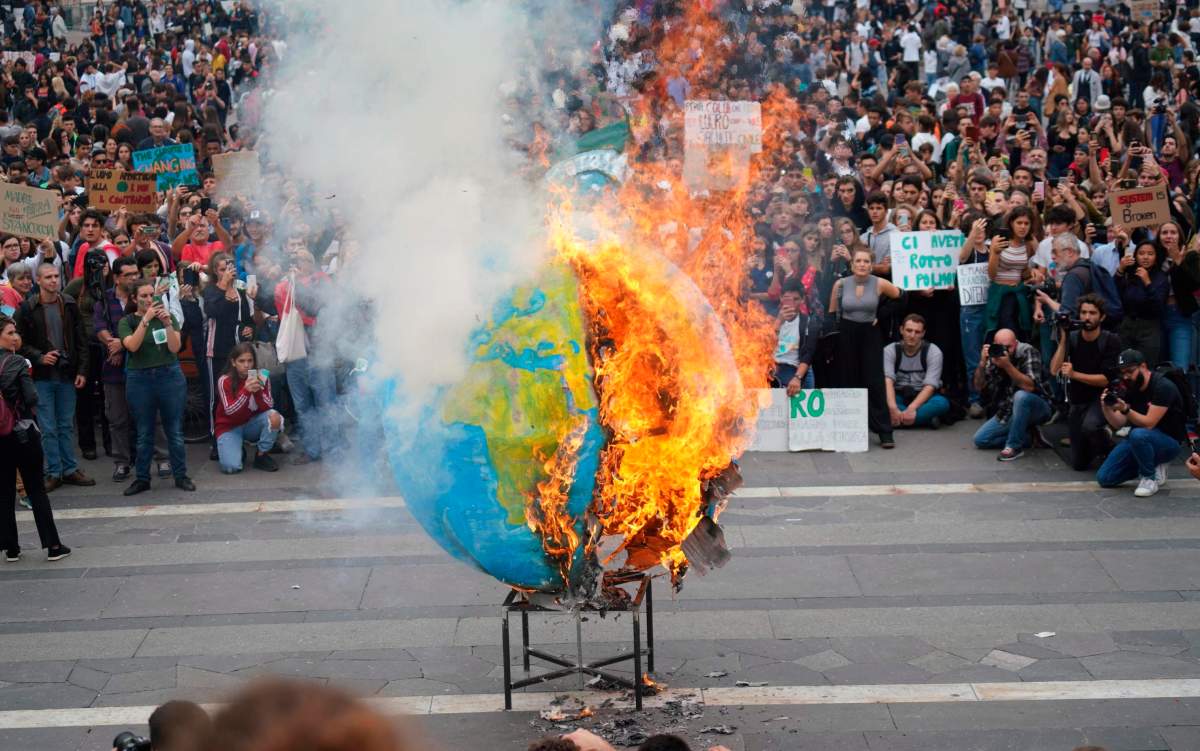Countries have procrastinated for too long and need to begin making steep cuts to their greenhouse gas emissions immediately, or risk missing agreed targets for limiting global warming, top United Nations officials said Tuesday.

The appeal by Inger Andersen, who heads the U.N. Environment Program, and others came days before governments gather in Madrid for an annual climate change meeting.
“We need quick wins to reduce emissions as much as possible in 2020,” Andersen said, as her agency published its annual `emissions gap‘ report showing the amount of planet-heating gases being pumped into the atmosphere hitting a new high last year, despite a near-global pledge to reduce them.
“We need to catch up on the years in which we procrastinated,” she said.

Over the coming decade, worldwide emissions of carbon dioxide, methane and other greenhouse gases will have to drop more than 7 per cent each year to stop average global temperatures from increasing by more than 1.5 degrees Celsius this century compared with pre-industrial times, the agency said. Scientists say that target — contained in the 2015 Paris climate accord — would prevent many of the more dramatic consequences of global warming.
“What we are looking at is really that emissions need to go down by 55 per cent by 2030,” said John Christensen, lead author and director of the UNEP-Danish Technology Institute Partnership. He warned that CO2 levels have begun to rise again after several years of stabilization.

Get daily National news
“If you look at the global emissions, they are still going up,” he told journalists at a briefing in Geneva. “(Carbon dioxide) has started to increase again, and it doesn’t look too good.”
Even the less ambitious goal of capping global warming at 2C would require annual emissions cuts of 2.7 per cent between 2020 and 2030, the UNEP said.
As part of the Paris Agreement, countries agreed to review their efforts for cutting greenhouse gases by 2020.
Current national pledges would leave the world 3.2 degrees Celsius warmer by 2100 than pre-industrial times, with dramatic consequences for life on Earth, the U.N. agency said, adding that getting the world back on track to 1.5 C would require a fivefold increase in measures pledged so far.

“The world is facing a climate emergency. It cannot be solved by governments alone,” said Katia Simeonova of the United Nations Framework Convention on Climate Change. “2020 is our last best chance to turn the tide,” she told the Geneva news conference.
Last week, UNEP published a separate report which found that countries are planning to extract more than twice the amount of fossil fuels from the ground than can be burned in 2030 if the 1.5C target is to be met.
“(What) countries are saying about supply doesn’t match up with what they’re saying about reducing emissions,” said report co-author Michael Lazarus, a senior scientist at the Stockholm Environment Institute.
This includes countries like the United States which, despite announcing its withdrawal from the Paris accord, claims to be reducing emissions even as it expands oil and gas production. But it also holds true for countries that tout their green credentials, such as Norway, which continues to drill for oil in the North Sea.
Christensen, the lead author, said the main cause of a recent increase in carbon dioxide emissions was economic growth in developing countries.
Officials appealed to governments that have already laid out targets for reducing their emissions to see if they can do more, and insisted that industries like power, transport, building and shipping can find opportunities to lower their emissions too.

“As individuals, we have a choice about how we live, what we eat and how we go about our business … and opportunities to live a lower-carbon life,” added Andersen.
Experts agree that the longer countries continue burning fossil fuels, the more warming will be “locked in” as emissions stay in the atmosphere for years or even decades.
Conversely, the sooner countries take steps to wean themselves off gas, coal and oil — such as by ending government subsidies for fossil fuels — the more warming will be prevented in the long term.
“If you’re in a hole, you should start to stop digging,” said Niklas Hagelberg of the U.N. Environment Program.







Comments
Want to discuss? Please read our Commenting Policy first.